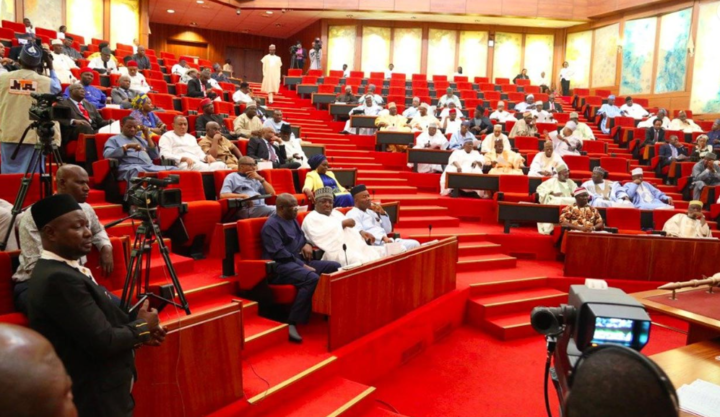The Senate of the Federal Republic of Nigeria has rolled out a series of decisive moves to tighten the oversight of public procurement across federal Ministries, Departments and Agencies (MDAs), underscoring the imperative of transparency, value for money and inclusive contracting. At the heart of the drive are two linked priorities: ensuring compliance with existing procurement laws and reforming those laws to open up opportunities for indigenous contractors.
In a press statement, Olajide Ipinshagba, Chairman of the Senate Committee on Public Procurement, asserted that procurement scrutiny by the Senate is not ceremonial but fundamental to protecting the citizen-ry’s resources. He warned that agencies which repeatedly ignore legislative summons or refuse to submit procurement documents would face immediate suspension of new contract awards. In collaboration with the Bureau of Public Procurement (BPP), the Committee has directed that procurement processes for defaulting MDAs be frozen until they fully comply with oversight requests.

In a separate but related development, the Senate moved to amend the Public Procurement Act 2007 and the Local Content Act. The directive empowers the Committees on Public Procurement and Local Content to liaise with the BPP and draft legislative revisions that reduce barriers for newly-registered and indigenous contractors, particularly for smaller projects under ₦50 million that have traditionally been dominated by large foreign firms. A motion sponsored by Suleiman Umar Sadiq (APC, Kwara North) highlighted the exclusion of local firms from public contracts and won broad support from senators who said the era of sidelining capable domestic contractors must end.
During a two-day retreat held in Abuja, Ipinshagba reiterated the Senate’s expectation that public procurement should translate government policy into tangible infrastructure, services and social benefits. “Public procurement accounts for a significant portion of national expenditure and therefore demands the highest standards of integrity, efficiency and accountability,” he said. Senators noted that revising procurement laws is integral to creating a system where younger, local companies can build experience, rather than being excluded by rigid pre-qualification rules and high financial requirements.
The oversight drive has already produced concrete sanctions: agencies which have failed to attend Committee hearings or submit procurement records have had their contract work suspended and the BPP instructed to enforce compliance. One senator warned that non-cooperation with the Committee is effectively defiance of constitutional and civic duty. The Senate’s message to MDAs is stark: invitees must appear, documents must be submitted, or procurement will be halted. The Senate described procurement oversight as a continuous process of evolution rather than a one-time intervention.
Analysts view the twin strategy of enforcement and reform as addressing both symptoms and root causes of procurement inefficiency and exclusion. On enforcement, suspending procurement in non-responsive MDAs is meant to disrupt entrenched impunity. On reform, amending procurement and local content laws seeks to embed fairness, local capacity development and broader participation in federal contracting. The ultimate goal—as articulated by lawmakers—is to ensure that every naira spent yields measurable development outcomes such as better schools, safer roads and stronger local businesses.
However, observers caution that success will depend on effective implementation. Challenges such as weak institutional capacity, cultural resistance to change within MDAs, and lack of adequate funding for oversight remain. Some experts argue that revising laws without strengthening enforcement and accountability mechanisms may fall short. Others say the real test will come when newly revised procurement thresholds allow smaller, local contractors to actually bid for and execute federal projects.
Nevertheless, the Senate’s actions represent a clearer alignment between legislative oversight and reform of the contracting regime. By signalling zero tolerance for procurement defiance and simultaneously expanding access for indigenous firms, the Senate hopes to recalibrate public contracting in favour of both integrity and inclusion. As one participant put it: the move is not just about rules—it is about transforming the procurement system into a platform for national renewal.
The Senate has set a timeframe for its Committees to deliver draft amendment proposals for the procurement laws. Once submitted, the bills will proceed through legislative readings, committee review and public hearings before becoming law. In the meantime, MDAs have been placed on notice: cooperate with oversight, submit procurement records, and enable inclusive contracting—or risk having procurement processes suspended.
This concerted effort comes at a critical moment, as the government continues to implement its economic reform agenda and public trust in value-for-money procurement remains fragile. The Senate’s focus on tightening oversight and widening access for local contractors holds potential to reshape Nigeria’s public procurement architecture—if the momentum is sustained and institutions deliver.
Support InfoStride News' Credible Journalism: Only credible journalism can guarantee a fair, accountable and transparent society, including democracy and government. It involves a lot of efforts and money. We need your support. Click here to Donate
